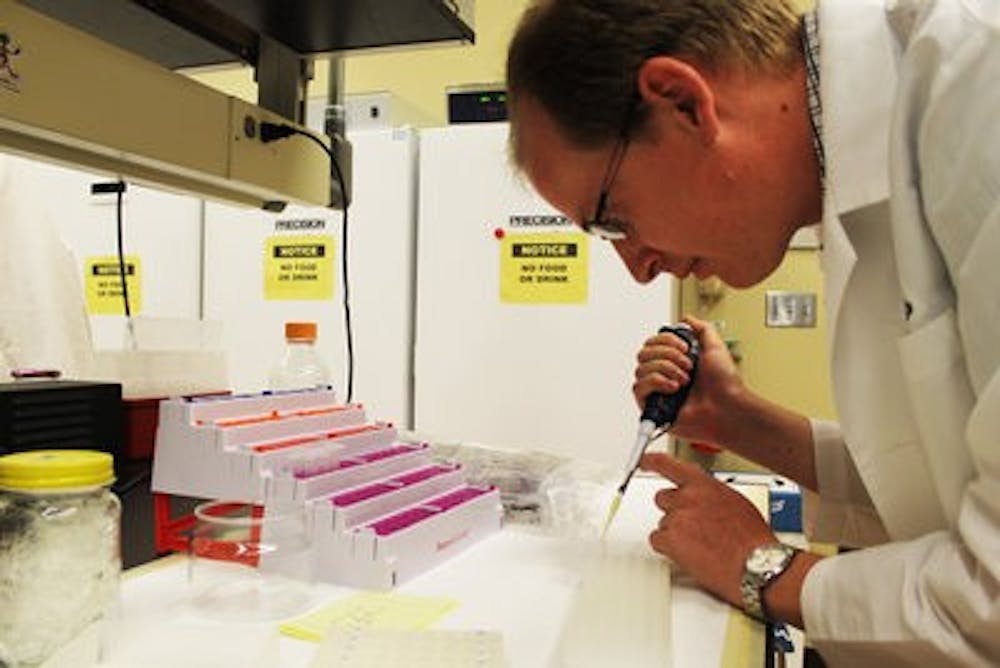Auburn University is continuing to make a difference across the globe. The Southern Forest Nursery Management Cooperative and Forest Health Cooperative are two research cooperatives in the Auburn University School of Forestry and Wildlife Sciences that have received a $218,000 grant from the United States Forest Service.
The grant will be used to fund supplies for a three-year project to improve screening methods, rapidly detect and successfully prevent the spread of a fungus called Fusarium circinatum that causes Pitch Canker disease, which kills full grown conifer trees and seedlings, around the world.
According to authorities, the fungus is currently present in the southern part of the United States and California. The fungus has not reached the northern states, but research shows that trees in the North are susceptible to the fungus.
Dr. Scott Enebak is a professor, director of the Southern Forest Nursery Management Cooperative in the School of Forestry and Wildlife Sciences and serves as the co-principal investigator over the new polymerase chain reaction (PCR) testing method funded by the grant.
"We are trying to prevent the movement of the pathogen to other places," Enebak said.
According to Enebak, the fungus is physically unrecognizable and is easily spread internationally. With the new testing method that will use plant DNA, the fungus will be detected quickly and easily.
The current testing method takes three or more weeks and is unreliable, but with the polymerase chain reaction testing method, the fungus will be detected after only half a day, according to Lori Eckhardt, assistant professor in the School of Forestry and Wildlife Sciences and serves alongside Enebak as the director of the Forest Health Cooperative.
Scientists at the University of Florida initially sequenced the genome of the fungus that causes Pitch Canker and are working with the School of Forestry and Wildlife Sciences at Auburn to develop the new screening method.
"They did phase one, and now we are doing phase two," Eckhardt said.
The grant is also being used to fund the studies of Ryan Nadel, a Postdoctoral Fellow who is working to develop the new testing method. Nadel is from South Africa and has lived in the United States for three months while he works with the cooperatives.
Enebak and Nadel both agree that the rapid speed of the new testing method is a necessity.
"The quicker to identify, the quicker to prevent the entry [of the fungus] into a country," Nadel said.
According to Enebak and Eckhardt, the goals of the new testing protocol are to make Auburn a central testing location where samples of pine are sent in to be tested for the fungus and for clean seed certification to be achieved faster.
"We want a more rapid test and a more accurate test," Enebak said.
To ensure the tests are more accurate the International Seed Testing Association must approve the new method.
Although the improved method of testing will be unable to treat the infected plant life, the early detection of the fungus will be able to prevent the spread of Pitch Canker and allow for recommendations on how to treat the infected conifers, according to Enebak.
Do you like this story? The Plainsman doesn't accept money from tuition or student fees, and we don't charge a subscription fee. But you can donate to support The Plainsman.





